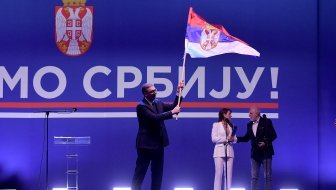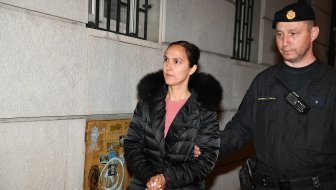The wartime interior minister and head of the Croatian Guard party, Ivan Vekic, held a press conference in the eastern city of Osijek on Saturday after he was recently questioned in connection with war crimes committed in the area in the early 1990s.
Vekic declined to discuss details of the case, but said that he took the summons for an interview with prosecutors to mean that he was either a witness or a suspect.
"I had a feeling I was being suspected of grave crimes," he said, but added he did not want to discuss to what extent his impression was established in fact. He said he considered himself a suspect because "we live in a time when only a shadow of doubt is enough for a person to find himself caught in a web from which it is hard to disentangle."
Responding to questions from the press, Vekic said that after the death of President Franjo Tudjman in late 1999, "things began to go astray" for war veterans. He asked why his colleagues from the wartime government, such as the then Prime Minister Franjo Greguric and other ministers, did not speak of his role in the war and his possible guilt.
When asked if he thought that the investigation in his case was leading to the current Deputy Speaker of Parliament, Vladimir Seks, Vekic said that he had been questioned by the county prosecutor and the municipal prosecutor in Osijek, that the questioning was "extremely fair" and that they did not want to do any harm to any of the veterans.
When asked who was responsible for the fact that war veteran Tihomir Purda, who is currently in custody in Bosnia and Herzegovina awaiting extradition to Serbia to face war crimes charges, had not been notified that he was wanted by Serbia, Vekic said that Purda should have been notified by the Croatian police.
Vekic said that veterans would soon hold a protest rally outside the Cabinet building in Zagreb.






![[VIDEO/FOTO] Vlada demokratskog jedinstva u Vukovaru: Hrvatskoj je potrebno negdašnje jedinstvo](/media/thumbnail/500x300/1560812.jpeg?cropId=0)




























